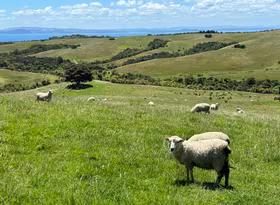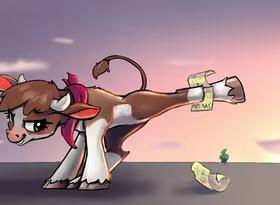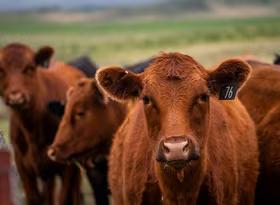Milking the golden cow
With dairy prices rising another 7.2% in Fonterra’s latest online auction, consumers are likely to face further increases in the price of milk and cheese at the supermarket this year. Inevitably there have been fresh calls for the Government to step in and help lower the price of milk. After all, New Zealand is responsible for more than a third of the world’s export dairy trade. If petrol costs just forty cents a litre in oil rich Saudi Arabia, why are we paying so much for our milk?
Supermarkets have been in the gun again recently, both over the price of milk and other products like fruit and vegetables. It is certainly possible that there is some fat in the domestic supply chain. On the surface of it, having only one major milk cooperative selling to only two major supermarket chains seem a recipe for excess profits. Investigating whether more competition in the dairy sector would improve domestic prices may have merit. But considering the high global price of dairy products at present, lack of competition is unlikely to be the main reason we are paying more for our milk.
Fonterra, which represents the farmers, will not drop wholesale dairy prices of its own accord. After all, farming is a business just like any other. Why would the farmers want to sell cheaply to the New Zealand market if they can get a better price offshore? Furthermore, New Zealand as a country would be poorer if farmers weren’t allowed to negotiate the best price for their products. Exports would fall and as a nation our ability to buy imports and service offshore debt would worsen.
If we can’t expect the supermarkets or the farmers to significantly lower their prices, that only leaves direct government intervention in the form of rationing or subsidies.
The pitfalls of rationing are well understood. The government would likely have to buy a fixed amount of milk at market prices, and then ration it at a lower price to consumers. Not only would many people who want to buy milk miss out, but a black milk market would develop where those who didn’t drink milk could buy their quota and then sell it on at higher price to those who want more than their quota. So it is unlikely that many people would advocate rationing cheap milk, but what about stand-alone subsidies?
Like with petrol in Saudi Arabia, subsidies on dairy products would have to be paid for by the government, or more accurately the taxpayers. If the government was to subsidise dairy products, consumption would go up. In other words, New Zealanders would drink more milk and eat more cheese because it would be cheaper. This would in turn cost the government more in subsidies.
Many wound not necessarily see an increase in the consumption of milk products as a bad thing, as there are worse things we could be putting in our bodies. But if I have decided that a block of cheese is not worth $15 to me, then why should the government buy it at $15 and sell it to meat $5? Other taxpayers would be paying for me to enjoy a product that is far from a necessity of life.
Prices are a signal about how scarce a resource is, and subsidies distort those prices. There is only so much milk to go around. With some previously poor groups of people around the world now able to afford to eat protein, they are entering the market and driving up prices. The reality of global trade is that the price you pay for a block of cheese at the supermarket is at least partly a reflection of what someone in China is willing to pay for the same block of cheese.
The flip side of this process is that people in China could conceivably end up paying more for their iPods because New Zealanders want to get their hands on some too.
Where does all this leave the poor New Zealand milk consumer? When people complain about the price of dairy products they usually blame either the farmers and Fonterra, the supermarkets, or the government. But the farmers are just negotiating the best price they can on global markets, which is good for them and the country. The supermarkets generally survive on pretty thin margins, even with only two main competitors. Finally, the government acts on behalf of the taxpayers, and subsidies on milk would cost us all dearly. So next time you hear someone grumble about the price of milk or cheese on the supermarket shelf, just gently remind them how much better off New Zealand is because of it.



